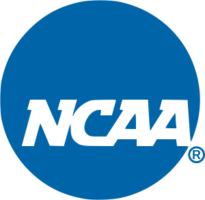The NCAA sports betting rules are under consideration, and it appears the organization is closer than ever to allowing college athletes and athletic department staff to participate. Well, at least when it comes to professional-level sporting contests. On Wednesday, the Division I Administrative Committee approved a proposal to lift the ban on betting on professional events, though the new rule must still gain approval from Divisions II and III before it can go into effect.
If all divisions agree, the change would take effect on November 1. The proposal would not allow wagering on college sports; it would only permit athletes and staff to bet on professional games. Violations such as wagering on collegiate events, influencing outcomes, or sharing inside information would remain strictly prohibited.
Committee chair and University of Illinois athletics director Josh Whitman said the decision reflects a modern approach to NCAA sports betting. He noted that while concerns remain about gambling risks, the revised policy would better align college athletes with peers on campus who already engage in betting on professional contests. According to Whitman, the change would free resources for focusing on integrity protections and education rather than blanket bans.
The Division I Student-Athlete Advisory Committee supported lifting this prohibition for NCAA sports betting, stating the shift would prioritize education and transparency over punitive measures. The advisory committee argued that removing certain barriers may help student-athletes and athletics staff to admit to issues, seek assistance, and engage in open conversations without fear of sanction.
The NCAA’s existing rules on wagering were developed in a time when sports betting was largely illegal across the country. Formal conversations about amending those rules began in May 2025. The shift coincides with a rise in gambling violations: in September, the organization permanently banned three men’s basketball players from Fresno State and San Jose State for wagering on their own games and manipulating performance. Additional investigations have uncovered at least 13 former athletes from six universities involved in betting misconduct.
Jon Duncan, NCAA vice president of enforcement, said attention will remain focused on behaviors that threaten the integrity of college competition. He added that enforcement staff are already investigating a significant number of cases relevant to fair play in NCAA sports. If Divisions II and III approve the change, the new NCAA sports betting rules would represent a landmark shift in how the association regulates gambling activity among those tied to collegiate athletics.



